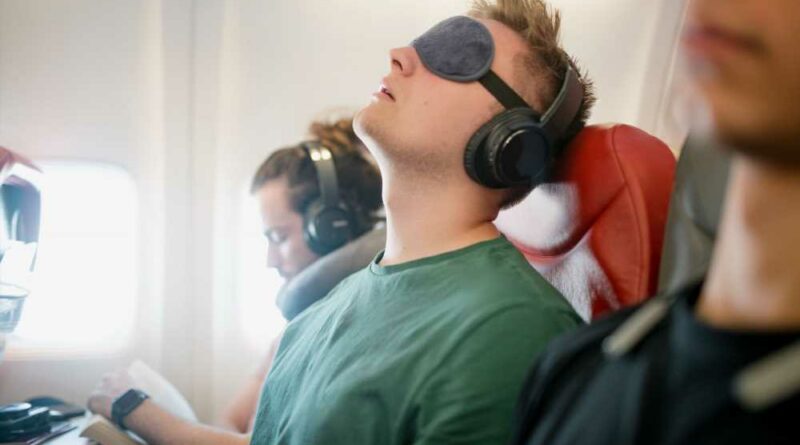Why you should never sleep through takeoff and landing on a flight – as it could risk your health | The Sun
AS CHRISTMAS draws near and Brits make their preparations for holiday travel, one aviation expert has warned against a common mistake that could prove dangerous.
There are two crucial reasons why passengers on a plane should never sleep during takeoff or landing.
Dozing off on a plane might seem like the ideal way to pass time while travelling by air, or to catch up on sleep lost while packing last minute for a trip, but it comes with serious risks.
It is imperative you stay awake until after takeoff to lower the chance of you suffering ear barotrauma, also known as airplane ear, says an expert.
Ear barotrauma is a type of ear damage caused by pressure differences between the inside and outside of the ear.
The imbalance can cause your eardrum to bulge painfully, similarly to if you had swum to the bottom of a pool.
Read more air travel tips

I'm a travel expert who's flown 300 times – the secrets passengers aren't told

Little-known insider tricks even travel agents use to save money on plane fares
Oftentimes, passengers' eardrums will struggle to cope with the rapid changes in air pressure experienced in a plane cabin during takeoff and landing.
This can lead to travellers experiencing pain, a sense of stuffiness, slight hearing loss, or muffled hearing.
A professor at the University of Nevada Dan Bubb told Travel and Leisure: "When we are asleep, we don't swallow as much to equalise the pressure in our ears."
Most healthy adults will be able to pressurise their ears by yawning, swallowing, or chewing, thereby opening up the Eustachian tube in each ear, but others – such as children and infants who have smaller Eustachian tubes – may struggle.
Most read in News Travel

My budget-friendly version of island getaway – on Tenerife’s ‘unspoiled sister’

Inside the ‘dystopian palace’ that was used to film huge Hollywood blockbuster

I went on a motorhome ski trip – campsites are a bargain & even have saunas

The under-the-radar Spanish beach resort with cheap flights and 20C weather
Factors including congestion due to illness, allergies, and an infection can all increase the risk of a person suffering ear barotrauma – but using silicone ear plugs may reduce it.
Bubb said: "The other reason to avoid sleeping during takeoff and landing is to be fully aware of what is happening if there is an emergency and passengers and crew members need to evacuate the airplane."
A plane is statistically more likely to experience an accident during takeoff and landing, according to reports by Boeing and Airbus, and sleeping during an emergency could delay your reaction time.
Saving sleep for when you arrive at your holiday destination may be the best way to guarantee you enjoy a safe and pleasant flight.
Source: Read Full Article


